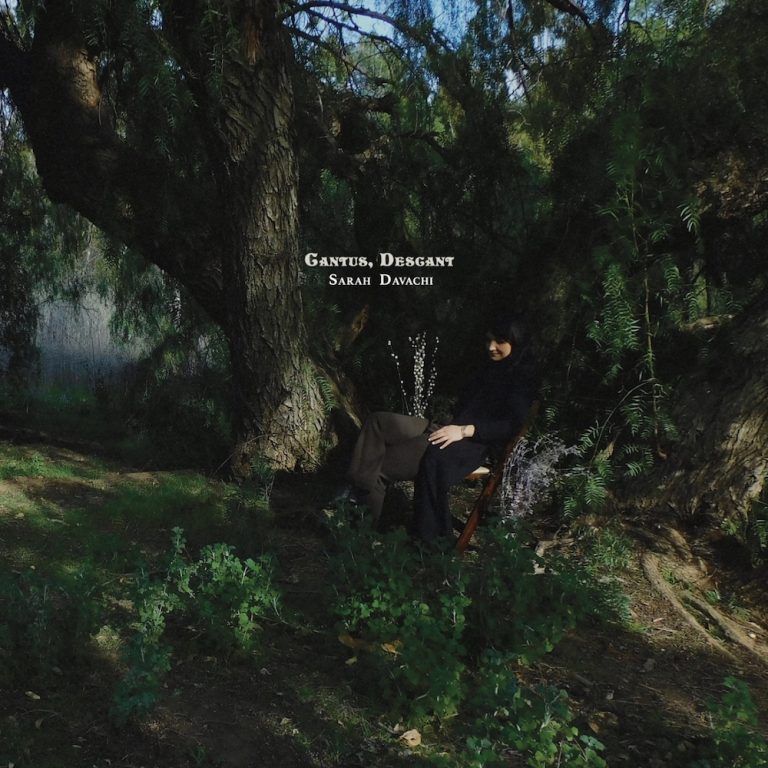Drone music is the rare genre that, when successful, seems to make very much out of very little. Think of some of the heavier hitters of the genre; Stars of the Lid’s And Their Refinement of the Decline features several songs rolling out over five, eight, or almost 20 minutes, suspended upon a precious few notes, played out warmly via treated guitar and strings; Windy & Carl’s Antarctica consists of three very long songs, wherein you may not find much difference if you skip from the two-minute mark to the 15-minute mark, but if you let it spread out over you, it encompasses you, and lulls you into its spell; and William Basinski’s Disintegration Loops is full of hours of material that feels like it hardly moves, even as it is in constant flux.
That enveloping effect is something that, seemingly, much of the genre strives for. When it doesn’t work, the pieces feel lifeless, meandering, or even facile or simplistic. But when it does work, it draws in the listener, entreating them to worlds of sound, tones and chords evoking feelings in ways that full bands try and frequently fail to evoke with much more complicated setups. Drone isn’t easy, and the drone that is easy usually falls into flatter territory. Luckily, we have people like Sarah Davachi to show us what can be accomplished within this spacious, generous style of music.
Davachi operates within an austere sense of minimalism. Hers is a type of drone music that often feels even less mobile than others. And she’s quite prolific, too, having already released several EPs this year, and a full-length last year. Her work, like 2019’s Pale Bloom, often centers around her minimalistic piano and some light additional instrumentation, be it strings or synths. There’s a certain stillness to her work that feels at once stultifying and immense, her sounds coming off like the aural equivalent of some inescapable, imposing giant. It can occasionally be a bit impenetrable and lugubrious, but it can also, in the right light, be something to marvel at.
That feeling extends into 2020’s Cantus, Descant, which features, largely, organ-based drones, and fewer pianos. On this album, Davachi plays various pipe organs, reed organs, electric organs, and then adds in some synth work, piano, and mellotron. One of the more shocking additions is the occasional use of her own voice, as on “Play the Ghost”, where it comes off as a shy, emotive, Grouper-like whisper. What she’s saying is not as important as the sound of it, her syllables disturbing the spell just enough to land like some ghostly weight.
More often than not, the album – spread out across 17 tracks and a rather over-long 80 minutes of material – is full of the same kind of spare, sparse, airy drones that we may expect from Davachi and purveyors of this particular brand of minimalist drone. It often seems to blend together, creating one 80-minute mass to bask in, get lost in. And that is perhaps the optimal way to experience it, as it does too often feel a bit too faint, sterile, or slow to leave that much of an imprint.
That’s not to say there aren’t highlights spread across the album, though. The “Stations” series (there are five of them spread throughout the tracklist) exists mostly upon an insistent sequence round pipe organ tone, with slow, beautifully wrought transitions. “The Pelican” has a plinky keyboard melody atop its drone that incrementally seems to get eerier and eerier, almost menacing, like a slightly off-kilter track from a classic video game soundtrack. “Gold Upon White” has some gleaming high keys that let the track ascend into something gently celestial. “Canyon Walls”, the other track to utilize her unaffected voice, contains spellbinding mellotron melodies.
While there are moments to appreciate in isolation all across Cantus, Descant, some of it just comes off a little too inert in combination. The longest track, “Midlands”, has a stunning, emotive beauty to it, like a film score in slow motion, but at almost 10 minutes it overstays its welcome just a hair. “Hanging Gardens” has a lovely airy sheen to it, but it’s almost too aloft for its own good, missing the grounding of other tracks, making it feel as if it’s liable to float away at any moment. The closing “Diaphonia Basilica” is almost too obvious in its organ instrumentation, sounding like it was beamed in from a slightly more direct ambient album.
These tracks and others aren’t even necessarily bad, but amidst the 80 minutes of material here, the songs too often blend into a large, muddy, twilit whole. Cantus, Descant serves as a reminder that Davachi has a firm handle on her style of drone, and the album definitely provides a balm for when you simply want to close your eyes and transport to some windy moore or forgotten valley. But, overall, while the album certainly has some parts that stunningly wash over you, it has many others that simply wash away.

